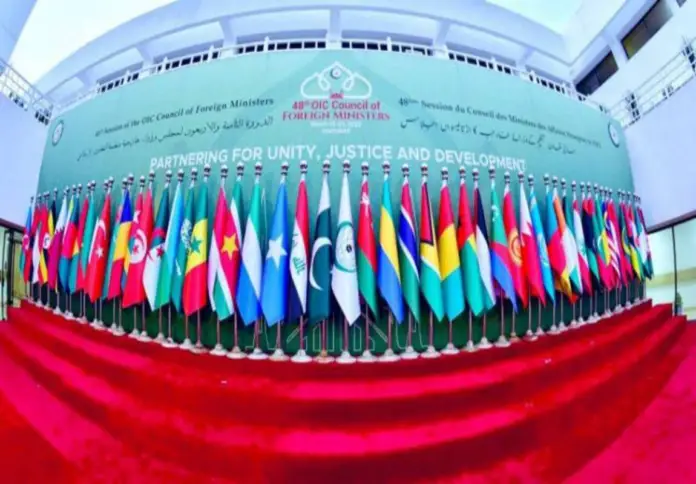Organization of the Islamic Conference (OIC) is the second-largest organization in the world after United Nations, with 57 countries in its squad. The motto of this organization is “collective voice of the Muslim world to safeguard and protect the interests of the Muslim world, and promoting peace and harmony”. Many non-Muslim countries with a Muslim majority are also a part of this organization.
Many countries like Saudi Arabia and Bangladesh suggest that India should also join the OIC as an observer as Muslims are the second-largest religious group in the country comprising about 15% of the total population. Even though India knows that if it becomes an observer in OIC, it will have to allow the fact-finding delegation of OIC to visit Jammu and Kashmir, which can be very problematic for its image.
India and Pakistan have a dispute over Kashmir. Unlike the Palestine-Israel conflict, Indian oppression in Kashmir is not recognized as a major conflict in the Muslim world and is termed as an internal matter between Pakistan and India. Pakistan made sure that a country that is openly suppressing the rights of a Muslim majority region and preventing self-actualization will not be a part of an association that has been exclusively formed for the rights of oppressed Muslims.
In 1969, due to the influence of Pakistan, India, which was formally invited to the first OIC meeting, was denied entry after opposition from then Pakistani president Yahya Khan. He had a valid reason to do so. At the time, there were ongoing riots in Gujarat between Muslims and Hindus. The Muslim communities in Gujarat suffered a major loss in the clashes. About 430 Muslims were killed and 592 were injured. Muslim citizens were also deprived of property worth 32 million. So amid these clashes, India was in no position to act like it was concerned with what had happened in the Al-Aqsa mosque. Thus, the Indian delegation led by Fakhruddin Ali Ahmed that landed in Morocco had to go back after certain countries were ambivalent about the violence in Gujarat.
After this humiliation, India decided to approach the OIC observers individually. It tried to form strong bilateral relations with countries like Saudi Arabia, UAE, Jordan, Qatar, Iran etc. However, these attempts could not help India become an observer. Muslim countries had no such mutual interests with India, so they remained at a distance from India. Many Muslim countries were striving to be the leaders of Muslim Ummah in those decades so they refrained from mingling with the countries which were oppressing Muslims.
Later on, when Pakistan became a nuclear power, most Muslim countries realized that no matter how much they achieve, Pakistan will remain the strongest country in the Muslim group because of its nuclear status. So they revisited their foreign policy. However, they were still hesitant in openly approaching India until Mohammad Bin Sultan arrived. Gulf’s policy became profit-oriented, which was an opportunity for India. India used its economy as a card for its foreign policy. It tempted these countries with huge investments, and as a result, in March 2019, Indian foreign minister Sushma Swaraj was invited as a chief guest to the 46th session of OIC in UAE.
Pakistan once again took a stand against the presence of India at OIC. Pakistan had its own differences with India but this opposition was not merely about unprovoked violation of its airspace by India. It was around an environment when India was under the leadership of a prime minister who was involved in the Gujarat massacre against Muslims, an environment when Muslim minorities were beaten just for eating beef, and when Hindu extremists were oppressing Muslims and the state was not interested in listening to their voices (and all this is getting worse today).
So Pakistan raised its eyebrows when Sushma Swaraj was there to talk about regional harmony and peace. Thus, Pakistan did not attend the session in protest. India gained influence in OIC but this dominance was very short-lived. Revocation of Article 370 in occupied Jammu and Kashmir by India ruined its chance at OIC membership, but it did not affect the country.
Over the years, the forceful occupation of Kashmir has been condemned in OIC multiple times, however, practical steps to pressure New Delhi were never taken by OIC members. In fact, most OIC members developed really good relations with India. So India never took notice of OIC resolutions regarding Kashmir. And why would it? India never took the UN resolutions serious and got away with it.
OIC needs to recognize the oppression of Kashmiris just like it recognizes the oppression of Palestinians. It needs to be strict with India just as it is with Israel, otherwise, as our premier said, there is no use in having these meetings, passing resolutions and going back to business as usual if they are not going to have any significant impact.







